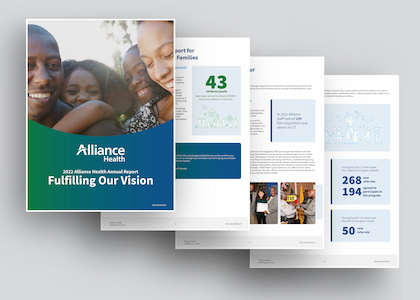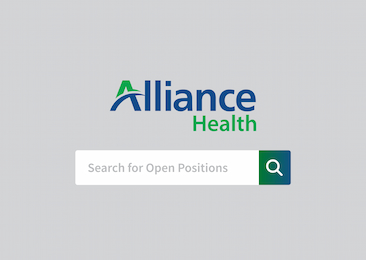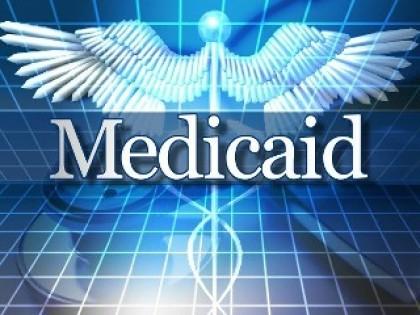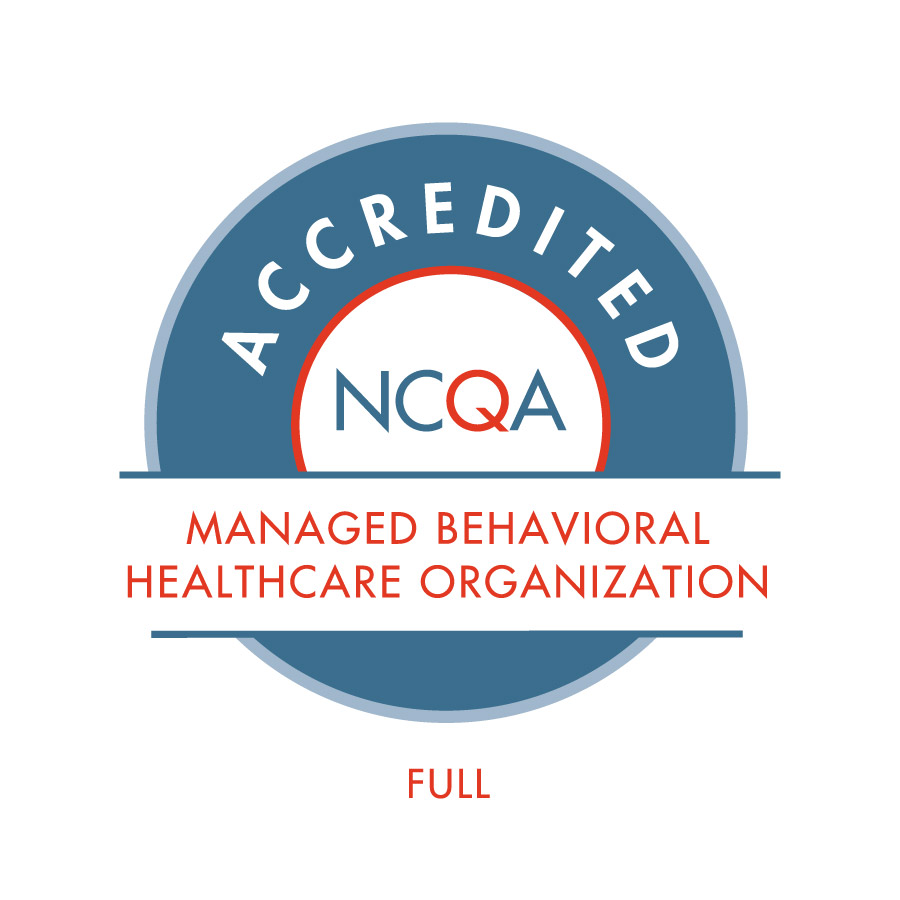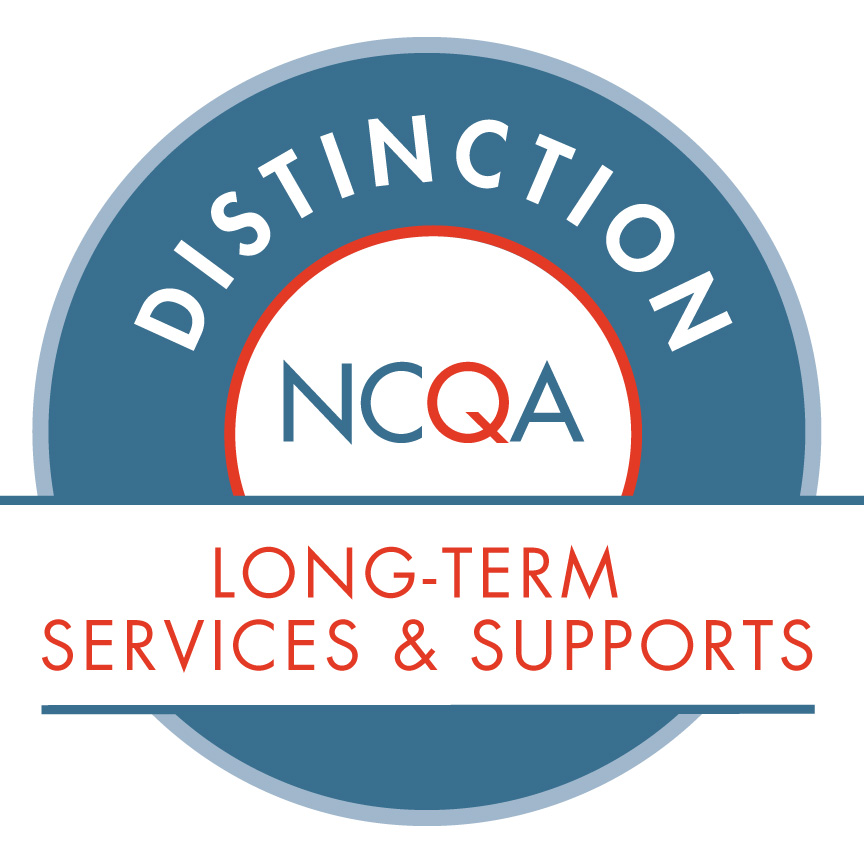Alliance Health has joined with other Medicaid health plans across the country to encourage the U.S. Congress to increase its support of low-income Americans and the health systems that serve them. We seek to ensure that these same individuals and families, often from low-income communities of color, receive access to the health care they need and deserve during the COVID-19 pandemic and beyond. See the letter sent to Congress below.
Dear Leaders:
The undersigned managed care organizations serve over 17.5 million Medicaid beneficiaries throughout the nation. We applaud the efforts of Congress to date to support low-income Americans and the health systems that serve them during the COVID-19 pandemic. We write now to encourage you to take additional needed actions to ensure these same individuals, often from low-income communities of color, continue to receive access to the health care they need and deserve.
As a result of the extraordinary consequences of the national emergency, the impacts of the pandemic are expected to increase Medicaid enrollment throughout the country, further straining every state’s budget over the next two years, if not longer.
During the financial crisis of 2008-2011, the 2009 American Recovery and Reinvestment Act (ARRA) provided for $98 billion in much-needed direct fiscal relief over the two-and-a half-year period. We believe that the following steps, taken in concert, will help Managed Care Organizations, Medicaid beneficiaries, and safety net plans across the country maintain stability during this recession.
Stable Medicaid Funding
Increase the federal share of Medicaid spending and commit to at least a two-year period of federal Medicaid funding for states.
Because of the pandemic, states will experience large declines in revenue just as the need for services, including Medicaid, will significantly increase, resulting in large budget gaps. Not surprisingly, states are already estimating significant revenue declines and unemployment estimates that could easily exceed those experienced during the last recession.
Based on analysis of the provisions included in ARRA to fund a temporary increase in the federal share of Medicaid costs, as well as Medicaid enrollment trends, we calculated an inflation-adjusted, per-enrollee amount of funding currently needed. We then applied this to recent estimates from Health Management Associates (HMA) that predict a national increase in Medicaid enrollment from the current 71 million beneficiaries to 82 to 94 million beneficiaries as a result of growth in unemployment[i]. We found that between $167.6 and $192.1 billion in funding is needed to sustain the Medicaid program at the current level in the midst of the pandemic and the resulting recession.
The national health crisis also will increase demands on Medicaid utilization. By picking up a larger share of the costs of Medicaid, the federal government can make sure that state budget decisions do not constrain the health response needed by the states to address the pandemic. It will also ensure that increased Medicaid costs do not force states to cut spending in other areas (e.g., education or public safety) in ways that could contribute to a further economic downturn or even cause a delay of economic recovery.
Medicaid Fiscal Accountability Proposed Rule
Suspend the proposed Medicaid Fiscal Accountability Proposed Rule (MFAR) during the COVID-19 pandemic, and wait for further analysis from the Centers for Medicare & Medicaid Services to understand the devastating impact MFAR will have on millions of Americans.
In November 2019, the Centers for Medicare & Medicaid Services (CMS) released the Medicaid Fiscal Accountability Proposed Rule (MFAR), which would reduce the amount of funding provided to states as part of their Medicaid matching funds when the funding is generated through various supplemental means (e.g., provider taxes, intergovernmental transfers). Many states use supplemental funding mechanisms to provide the non-federal share of some of its Medicaid funding.
MFAR must not be finalized during the pandemic. Due to the devastating financial impact on states that the Rule would have, we contend the proposed rule be suspended until more analysis is done by CMS. It is vital that the policy and financial impact the proposed rule would have on states and in particular, the Medicaid delivery system and beneficiaries be fully understood. Moving forward without this information is dangerous to the efficiency and operation of any Medicaid program, and it jeopardizes beneficiary services. Prior to the pandemic, it was estimated that the enactment of MFAR would cause millions of patients to lose access to care in public health care systems alone, and it was projected that many public health care systems would not be financially stable and thus would have to close.
For nearly all states, the reductions that would result from MFAR would unquestionably mean cuts in Medicaid program enrollment and services. The impact in some states could be catastrophic on state Medicaid funding and ultimately reduce access to critically needed health services for Medicaid beneficiaries.
Telehealth Services
Advance telehealth and telephonic policies and payment reform in both the Medicaid and Medicare programs that expanded access to critically needed care to hundreds of thousands of patients.
Under your leadership, the pandemic response packages have made important strides toward ensuring patients can access covered services via telehealth technology. In part, because of these regulatory and statutory changes, telehealth usage has increased significantly. Although provider visits dropped dramatically at the beginning of the stay-at-home orders, the quick conversion to telehealth visits allowed providers, particularly health centers, to rebound quickly – keeping providers and their office staff safe and leaving no gap in care. The increased use of telehealth has proven to be key in limiting the spread of the virus by keeping people at home, when appropriate, and providing access to those with mobility issues.
It is important that patients do not lose access to telehealth services after the pandemic ends and to ensure our nation is truly prepared for any future public health emergencies. We encourage Congress to advance telehealth policies and payment reform in both the Medicaid and Medicare programs. Properly designed programs will promote access to care while still offering quality assurances and protections from Fraud, Waste and Abuse. It is also evident that telehealth has removed barriers to treatment for our members, especially in behavioral health.
Suspend Implementation of the Public Charge Rule
Fully suspend the Public Charge Rule (Rule) until the COVD-19 emergency has subsided.
On February 23, 2020, the U.S. Supreme Court removed the remaining Public Charge injunctions, allowing the policy to go into full effect on February 24, 2020. The Public Charge rule makes legal immigrants who receive non-cash public benefits, such as Medicaid, food assistance, and housing assistance, potentially ineligible for green cards and visas. Although on July 29th, a federal district judge issued a nationwide injunction preventing the Administration from implementing, enforcing, or applying the Public Charge Rule during the pandemic, we are still requesting congressional action.
Not surprisingly, the Rule has created an environment of fear throughout immigrant communities who were already wary of accessing health care coverage, long before the Rule went into place. In December 2018, the Urban Institute conducted a survey on non-elderly adults in immigrant families and found that one in seven did not participate in non-cash government benefit programs because of their fear it would impact their green card application.
As an effective public health response, it is vital that the federal government fully suspend the Rule for the duration of the emergency, at a minimum.
Presumptive Eligibility
Extend Presumptive Eligibility (PE) to all applicants that appear to be Medicaid eligible (based on initial income screening by a qualified entity); expand the types of entities qualified to perform PE screening; allow qualified entities to utilize online/telephonic applications and online/telephonic signatures for PE applications; and disallow any maximum limitation amounts that would prohibit a person from applying for PE more than once in a twelve-month period.
Presumptive Eligibility (PE) is a Medicaid policy option allowing states to authorize specific types of entities (e.g., federally qualified health centers, hospitals, and schools) to screen eligibility based on income and temporarily enroll them in Medicaid coverage while their full enrollment application is being considered. The goal of PE is to provide short-term coverage of health care services for those who appear to be eligible for Medicaid but are not currently enrolled. This allows those individuals to receive much needed medical care while they complete the full Medicaid application and counties to conduct the enrollment process. The expected influx of Medicaid applications could prove challenging for counties to process in a timely manner. Thus, we are asking that the federal government allow PE for a period of 90 days while counties and the Medicaid applicants complete the enrollment process, and allow for extensions if counties are experiencing delays in processing Medicaid applications.
As managed care plans, we are prepared to provide expertise, data and ideas as you consider various issues to be addressed in the next relief package. We stand ready to work with you to craft solutions that will ensure the solvency of the Medicaid program during and after this national emergency. These are trying and uncertain times for all Americans, and more so for our most vulnerable. Taking the above steps will result in better health care outcomes for the vulnerable members of our communities and for the nation as a whole.
[i] https://www.healthmanagement.com/wp-content/uploads/HMA-Estimates-of-COVID-Impact-on-Coverage-public-version-for-April-3-830-CT.pdf
Sincerely,
Alameda Alliance for Health
Aloha Care
Alliance Health
AmeriHealth Caritas
Amida Care
Blue Shield of California Promise Health Plan
CalOptima
CalViva Health
CareOregon
CenCal Health
Central California Alliance for Health
Children’s Community Health Plan
Communitycare Plan
Community Health Group
Community Health Plan of Washington
Contra Costa Health Plan
County Care/Cook County Health Plan Services
Gold Coast Health Plan
Healthfirst
Health Net of California & California Health and Wellness
Health Plan of San Mateo
Health Plan of San Joaquin
Inland Empire Health Plan
Kern Health Systems
L.A. Care Health Plan
MetroPlus Health
Partnership Healthplan of California
San Francisco Health Plan
Santa Clara Family Health Plan
UPMC For You
Virginia Premier
